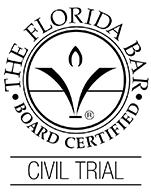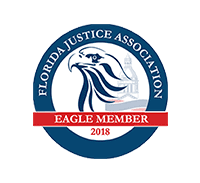Who Can Serve as a Personal Representative for Wrongful Death Claims?
Florida law requires all actions for wrongful death to be brought by a “personal representative.” Some states call this person an “executor” or “administrator” The personal representatives’ job begins with letters of administration issued by the court authorizing the personal representative to act on behalf of the estate and the survivors. There are occasions where legal disputes arise over who is best qualified to serve as personal representative.
In Situations Where There Is a Will the Order of Preference Is:
- The person or legal entity selected in the will
- The successor to the person or entity selected by the will
- The person selected by a majority of the interested persons entitled to recover in the estate
- The best-qualified devisee under the will in the view of the court
- Any capable person appointed by the court
In Situations Where There Is No Will the Order of Preference Is:
- The surviving spouse
- The person selected by a majority of the interested persons entitled to recovery in the estate
- The heir who is of the closest relation, or the best-qualified heir in the view of the court
- Any capable person appointed by the court.
Nonresidents as Personal Representative
Florida has adopted special rules for out-of-state residents who wish to serve. Generally, non-residents must be the decedent’s spouse, sibling, parent, child, or certain other close relative to be appointed as personal representative.
Persons Not Qualified to Serve as Personal Representative
- Individuals convicted of a felony
- Individuals who are not mentally or physically able to perform the duties
- Individuals who are under that age of 18



![cftla-member[2]](https://www.1800askdave.com/wp-content/uploads/2022/03/cftla-member2.png)
![cftla-member[3]](https://www.1800askdave.com/wp-content/uploads/2022/03/cftla-member3.png)










